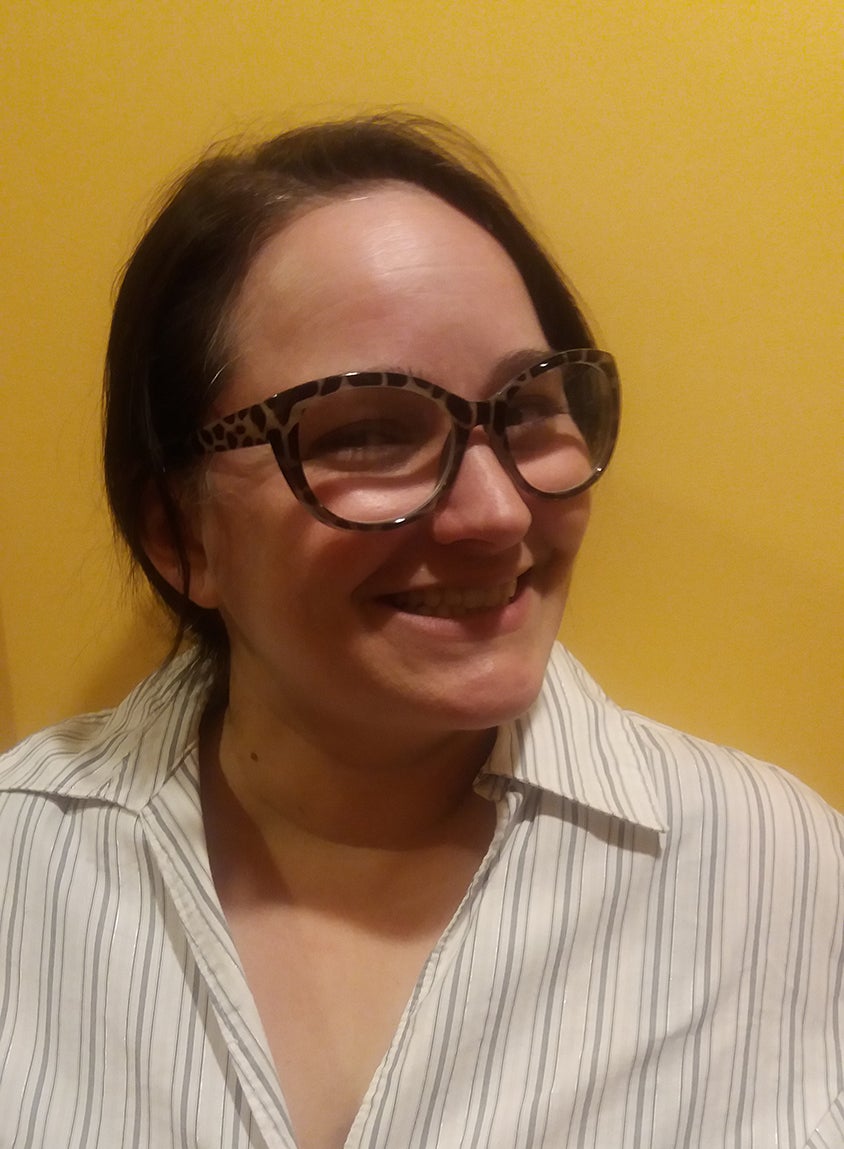 Heather J. Macpherson is a first-year PhD student in Literature in the English department with interests in Poetry, Animal Studies, Modernism, and Creative Nonfiction. Her writing, mostly essays and/or poetry, have appeared in Pearl, Spillway, Clare Literary, The Broken Plate, Parlour, Niche, Gravel and other fine places. She has thrice been features editor for The Worcester Review. Heather’s poem “Sestina Lot #41994” was nominated for a Pushcart Prize in 2016 by RadiusLit.
Heather J. Macpherson is a first-year PhD student in Literature in the English department with interests in Poetry, Animal Studies, Modernism, and Creative Nonfiction. Her writing, mostly essays and/or poetry, have appeared in Pearl, Spillway, Clare Literary, The Broken Plate, Parlour, Niche, Gravel and other fine places. She has thrice been features editor for The Worcester Review. Heather’s poem “Sestina Lot #41994” was nominated for a Pushcart Prize in 2016 by RadiusLit.
Heather received an Enhancement of Graduate Research Award (EGRA) this fall to work on a project regarding Marianne Moore. The EGRA is offered by the Provost, the Vice President of Research and Economic Development, and the Dean of the Graduate School at URI to to support research, creative or artistic projects. These awards, of up to $1000, are competitive and offered only once a year. In addition to the application, graduate students applying for the EGRA must include a proposal and budget for their project as well as a letter of support from a faculty member (Heather is working with Dr. Mary Cappello on this project). The applications are then reviewed by an interdisciplinary committee based on the writing, benefit to the student conducting the research, and the anticipated benefit of the research to the field and wider community.
We asked Heather a bit more about how she found out about and applied for the EGRA and to tell us more about her project.
How did you learn about the EGRA?
I first learned about the Enhancement of Graduate Research Award (EGRA) at our graduate orientation. Faculty members from the science department presented a workshop on proposal and grant writing with a focus on the EGRA; this particular award has, or had, a fall deadline so there was about six weeks, I think, between the workshop and the proposal deadline.
What is your current project and how did you come to this topic?
When I was a Master’s in English student at Worcester State University, I focused my thesis on the relational discourse in three pairs of animal poems by Elizabeth Bishop and Marianne Moore. During that time I was fortunate to receive university grant funding to do archival research at the Rosenbach Museum and Library in Philadelphia. My current project stems from those interests.
As I continued studying and reading Moore’s poetry and letters, I became intrigued by the influence of animal studies and biology in her work. I saw the EGRA as a great opportunity to further explore Moore’s visits and research at the American Museum of Natural History in New York. My aim is to create a sound essay replicating aspects of her July 5th, 1932 visit to the museum when she was writing her poem, “The Jerboa.”
We look forward to hearing more about Heather’s project as it comes to fruition!

